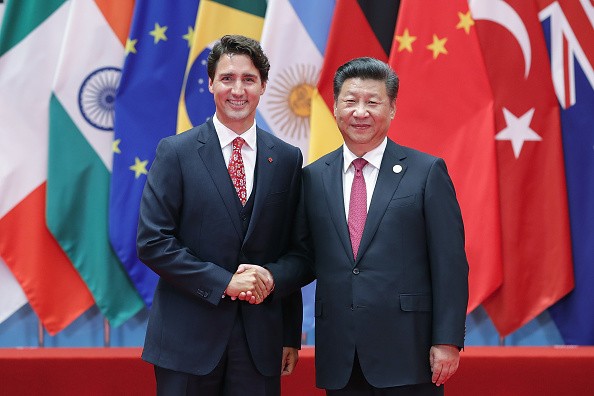As part of the negotiated trade deal between China and Canada, China is planning to buy Canadian companies and bring Chinese workers to Canada to work on projects, which will be mostly funded by the Asian Infrastructure Investment Bank (AIIB).
The move came after Canada joined the AIIB on Thursday, March 23, sputniknews.com reported. The Chinese government said that it would require unlimited access to the Canadian economy, including important sectors.
As this developed, state-owned enterprises also sought to bring their own workers on their projects in Canada.
The AIIB continued with its expansion after the U.S. withdrew from the Trans-Pacific Partnership, an agreement seen by Trump as harmful to U.S. economic interests.
Lu Shaye, Chinese ambassador to Canada, said that China is looking for mergers and acquisitions of Canadian companies, cautioned the Canadian government that human rights should not be used as "bargaining chip" or issue in their expansion.
"Investment is investment. We should not take too many political considerations into the investment," Lu said. "Just like the negotiations of the [Canada-US] free trade agreement, we should not let political factors into this process. Otherwise, it would be very difficult."
After reaching preliminary agreement early this year, China and Canada are expected to take the next round of negotiations in April.
Meanwhile, Canada believes the increasing activity of Chinese companies would bring more jobs and contribute to its economic growth.
"Canadian Prime Minister Justin Trudeau is very clear that we want to pursue stronger ties with China. We think that in the medium term this will lead to more Canadian jobs," Canada's ambassador to mainland China John McCallum said.
Observers, however, believe that the Canadian ambassador had overlooked China's intent to bring in workers to the country.
China's increased activity in the Canadian economy could cause tensions between Canada and the U.S., whose relationship was already strained by issues in the NAFTA trade deal.
Another issue is the import of Chinese workers into Canada, which some believed would not be advantageous as it is not beneficial to the host country, in terms of employment.
According to the report, China's business expansion into Canada is mainly due to its interest in the North American oil and energy. The U.S. has recently approved the Keystone XL pipeline, which will bring Canada's oil to refineries in Louisiana. Canada needs its own pipeline to be able to export oil on a global scale, such as bringing it to the Pacific coast to be exported by sea.
The report said that China wants the project to be undertaken by Chinese companies and Chinese workers.
Meanwhile, Canadians are divided on the trade deal with China as only 46 percent supported the deal, based on a poll conducted last August by the Asia-Pacific Foundation of Canada. The same percentage of people also opposed to the deal. According to the poll, most Canadians prefer to have trade agreements with advanced economies such as Australia, Japan and the European Union.
Other new AIIB members
The AIIB also announced on Thursday, March 23, the other new members of the bank, which include Hong Kong, Venezuela, Afghanistan, Ireland, Hungary, Belgium, Peru, Ethiopia and the Republic of Sudan.
Along with Canada, these countries are now full members of the AIIB, after making the required deposit and adapting their rules and regulations in accordance with the AAIB guidelines. The bank is expected to have 70 nations as total members.



























